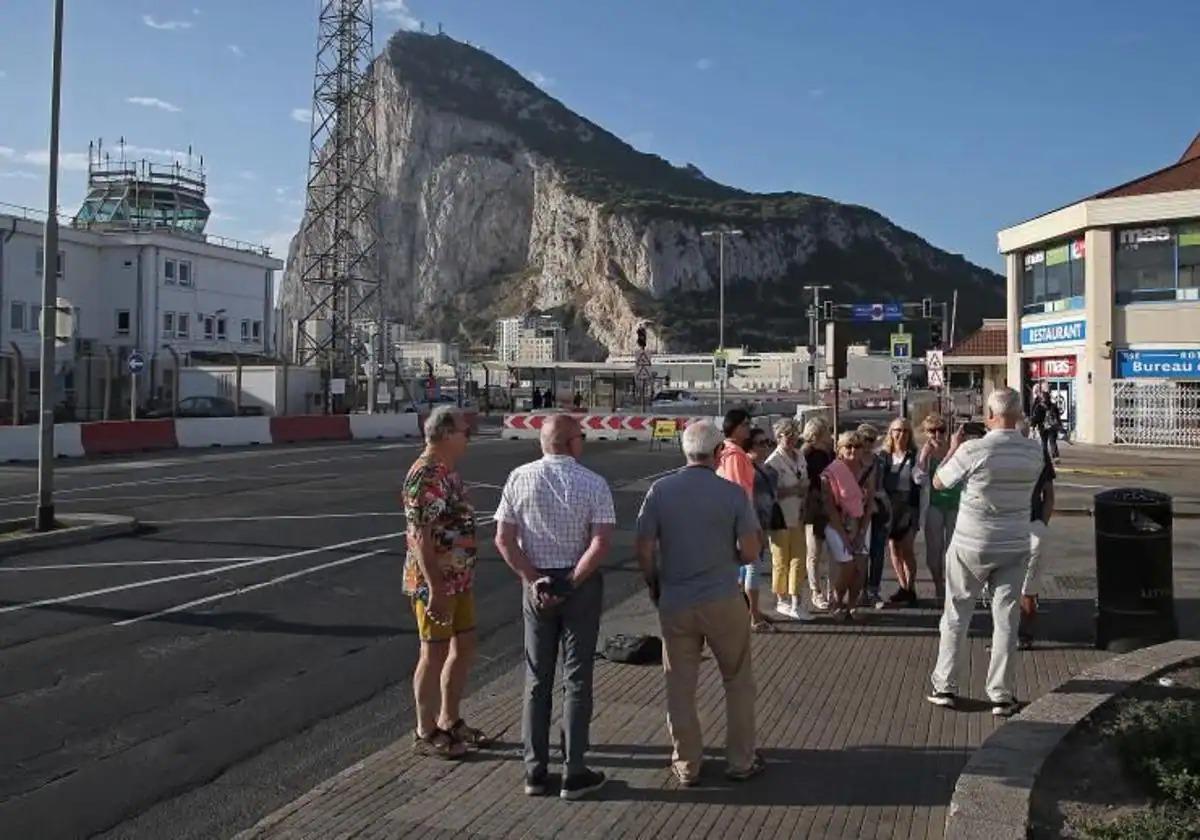

Sections
Highlight

The European Union is seeking this Friday to reach an agreement with the United Kingdom on the new status for Gibraltar after Brexit. Spain's Minister of Foreign Affairs, José Manuel Albares, is meeting in Brussels with his British counterpart, David Cameron, for talks that will also be attended by the Vice-President of the European Commission, Maros Sefcovic, and the Chief Minister of the Rock, Fabian Picardo.
Although the parties do not believe that this Friday's meeting will bring the matter to a definitive conclusion, they do point out that "in recent weeks there have been important rapprochements on the pending issues within a negotiation that is very complex". With less than two months to go until the European Parliament elections are held - which, if there is no agreement, would put a brake on negotiations until a new EU Commission can be formed - the will to reach an agreement is firm, Spanish diplomatic sources tell this newspaper, but the sensitive issues are still on the table.
One of the thorniest issues is the control of transit at the border, which is crossed daily by some 27,000 people, many of them itinerant workers. The proposal being worked on is for Frontex, the EU border agency, to carry out the checks, given the sensitivity of having Spanish police officers on Gibraltar soil.
The use of Gibraltar Airport, which lies on the isthmus linking the British overseas territory with Spain and is claimed by London and Madrid, caused talks to stall last year after Spain insisted that the UK agree to share control..
The main problem lies in the fact that it is located on a Royal Air Force (RAF) base and losing control of it is a red line for the UK. "There will be absolutely no agreement if it threatens the sovereignty or independence of our military options in Gibraltar," sources in the British government told The Telegraph.
The historic Verja, Spain's name for the (de facto) military line of control between Gibraltar and the Cadiz municipality of La Línea, which is just over a kilometre long, is another hotly debated issue in the negotiations.
On 31 December 2020, Spain and the UK reached an agreement in extremis for the demolition of any "physical barrier" between British and Spanish territories, with a "double key" system (in Gibraltarian and Spanish hands) to enter through the port and airport of the Rock. Albares now hopes that this will crystallise before the summer: "The physical disappearance of the border fence is one of the agreements, because what we want is for freedom of movement to prevail, and for that the physical barriers have to disappear."
It is not only purely territorial issues that are on the table. The UK's exit from the EU brought other headaches relating to pensions and taxation. Among other issues, it will have to be decided whether to equate the pensions of Gibraltarians with those of cross-border workers on the Rock; these are on average 400 pounds (around 465 euros) higher for the former.
To this he adds tax harmonisation, which would affect products such as tobacco, and which aims to bring Gibraltar in line with the tax burdens of other European territories, which do not necessarily have to be the same as those of Spain.
Publicidad
Publicidad
Publicidad
Publicidad
Esta funcionalidad es exclusiva para registrados.
Reporta un error en esta noticia

Debido a un error no hemos podido dar de alta tu suscripción.
Por favor, ponte en contacto con Atención al Cliente.

¡Bienvenido a SURINENGLISH!

Tu suscripción con Google se ha realizado correctamente, pero ya tenías otra suscripción activa en SURINENGLISH.
Déjanos tus datos y nos pondremos en contacto contigo para analizar tu caso

¡Tu suscripción con Google se ha realizado correctamente!
La compra se ha asociado al siguiente email
Comentar es una ventaja exclusiva para registrados
¿Ya eres registrado?
Inicia sesiónNecesitas ser suscriptor para poder votar.